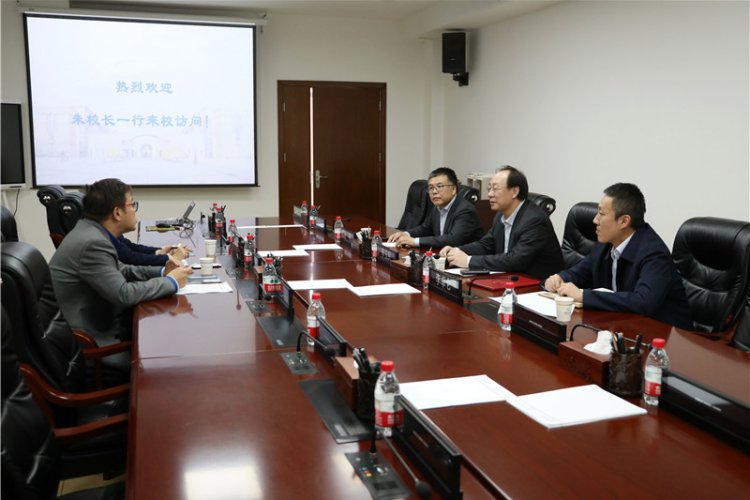
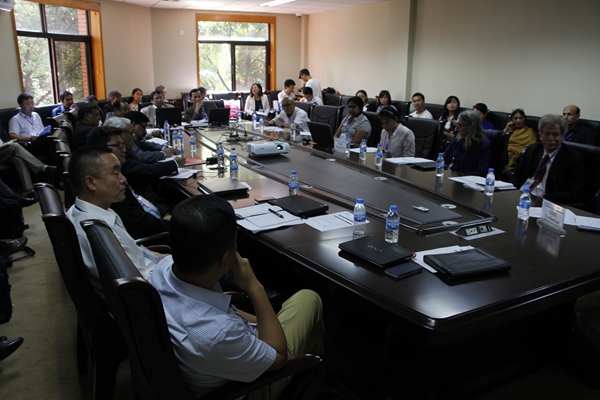
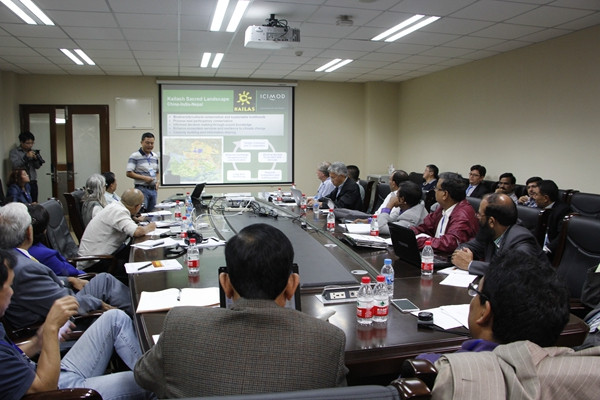
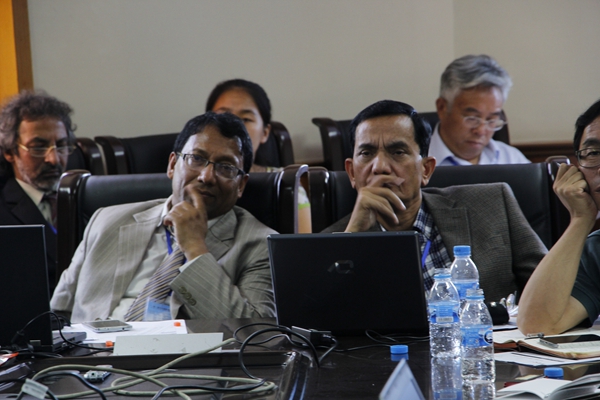
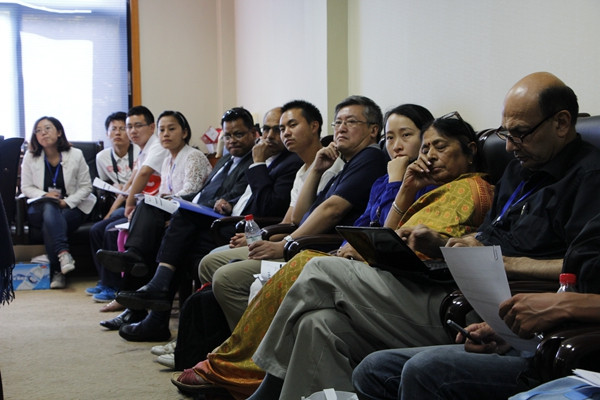
The "university cooperation" roundtable, which is the sub-forum of "one belt one
road" cultural roundtable conference jointly hosted by CSCLF and Lanzhou University, was held at room 202 in Yifu Science Hall on Aug. 24th to Aug.25th. More than 40 experts and scholars from 23 Universities and organizations attended this meeting.
On the afternoon of Aug.24th, the meeting focused on the sustainable development of mountainous regions. Participants did thorough discussions on the following four aspects: the livelihoods in Himalayan region, water resource usage, geospatial science, ecosystem services,etc.
Dr.Eklabya Sharma, from ICIMOD, hosted symposium aboutthe livelihood research on the Himalayas Region. Dr. Mohammad A.T. Chowdhury from Chittagong University of Bangladesh pointed out that based on social-ecological systems, the livelihood on the Mountainous region should apply scientific concepts and advanced equipment.
Dr. Dong Suocheng from Institute of Geographic Sciences and Natural Resources
Research, CAS, referred to in the conference the livelihoods and ecological research issues in the southern mountainous region of China and gave a brief introduction of the concerning policy of China. Dr. Gopal B. Thapa from Asian Institute of Technology of Thailand mainly related to the income ecological environment and women's status in the mountainous region.
The Participants did a group discussion on the leading edge of water resources
utilization. Dr. Bahadar Nawab Khattak (COMSATS, Pakistan) explained the research condition and the Challenge in the Himalayas Region.
Dr. MSR Murthy of ICIMOD delivered a speech named the agricultural challenges in Hindu Kush - Himalayas Mountains.
During the meeting, Prof. He Daming, the director of Asian International Rivers
Center, gave a speech “safety and cooperation mechanism of cross-border water
resource in Asia”. He explained the significanceof cross-borderwater resources, the security of cross-borderwater resource, and the international cooperation. He pointed out that the university cooperation will promote the development in cross-border water resources and ecological security.
On the morning of Aug.25th, the sub-forum on university cooperation continued and was hosted by Dr. Eklabya Sharma, deputy director of ICIMOD. The experts exchanged ideas on the issue of university cooperation.
Hadi Hedayati from Kabul University, Sankar K. from Wildlife Society of India, Jiang Jiajie from University of Science and Technology of China, Shahnawaz from Salzburg University, Yang Xiaoliu from Peking University, Ashok Gurung from Institute of Chinese Studies, gave a speech respectively.
Then, the university cooperation roundtable discussions was hosted by Dr. David
Molden from ICIMOD. At the meeting, experts and scholars from different countries and regions, put forwordlots of new ideas and new methods on university cooperation, which had a great significance on the future university cooperation.
The members of the Himalayan University Consortium (HUC) discussed and amended the articles of HUC, elected the members of the Steering Committee. University of Chinese Academy of Sciences, University of Science and Technology of China, Kunming Institute of Botany, Chinese Academy of Sciences,Institute of Chinese Studies, weredeveloped as new members.
The International Centre for Integrated Mountain Development (ICIMOD) is a
regional intergovernmental learning and knowledge sharing centre serving the eight regional member countries of the Hindu Kush Himalayas. ICIMOD serves eight regional member countries (RMCs) of the Hindu Kush Himalayan region –Afghanistan, Bangladesh, Bhutan, China, India, Myanmar, Nepal, and Pakistan – and the global mountain community. ICIMOD is based in Kathmandu, Nepal, and brings together a partnership of its regional member countries, partner institutions, and donors with a commitment for development action to secure a better future for the people and environment of the extended Himalayan region.
The Himalayan University Consortium (HUC) was founded in 2007, of which 16
regional members and 9 union members in other regions are included. HUC is to
contribute to enhanced collaboration among the universities of the region and to
promote centres of excellence on key topics relevant to the region. The aim is to
build a dynamic mountain knowledge partnership among universities, ICIMOD, and regional member country partners to promote research and learning.
Prospects: Consortium members hope to produce a cadre of trained professionals able to promote the mountain agenda and support the sustainable development of the greater Himalayan region by building a mountain-specific knowledge base and approach by developing the learning culture, a customised faculty, and staff training and improvement in the overall university curricula.
Objectives: First: to promote and support the conducting, acquiring, preserving, and sharing of mountain research, and develop data, information, and knowledge through academic and non‐academic means and platforms. Second: to provide open and equitable access to these knowledge resources to members and possibly others in the region. Third: to promote the effective use of the available knowledge through training courses, academic curricula, student/faculty exchanges, and web‐based information portals.




